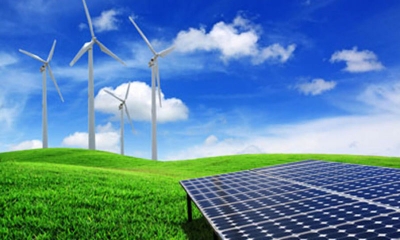K'taka, Gujarat make most progress in clean energy transition: Report
By IANS | Updated: February 27, 2023 10:25 IST2023-02-27T10:06:06+5:302023-02-27T10:25:20+5:30
New Delhi, Feb 27 Karnataka and Gujarat are the Indian states making the most progress in overall preparedness ...

K'taka, Gujarat make most progress in clean energy transition: Report
New Delhi, Feb 27 Karnataka and Gujarat are the Indian states making the most progress in overall preparedness and commitment in the transition to clean electricity, a new joint report from the Institute for Energy Economics and Financial Analysis (IEEFA) and Ember showed on Monday.
The report analyses 16 Indian states, which together account for 90 per cent of the country's annual power requirement, across four dimensions.
The dimensions track a state's preparedness to shift away from fossil fuel-based power, its ability to incentivise greener market participation, its power system's reliability and policies pushing for power sector decarbonisation.
Based on this analysis, the report authors devised the states' electricity transition (SET) scoring system, which measures the performance of the different states in the transition to clean electricity.
India's revised Nationally Determined Contribution (NDC) targets have put the country on the right path for transitioning its electricity sector. To achieve those targets, the Centre now needs the cooperation of the states to move faster in their clean electricity transitions.
This means states redoubling their efforts to walk the electricity transition pathway, and both Central and state governments tracking progress and taking corrective measures as required, says the report's co-author Vibhuti Garg, Director, South Asia, IEEFA.
The report outlines focus areas for states to improve their preparedness for transition, such as exploiting wind and solar generation potential and deploying more energy storage solutions, such as batteries and pumped hydro, for better renewable energy integration.
"Bihar, Uttar Pradesh and West Bengal have work to do to strengthen their clean electricity transition performances. These three states should maximise their renewable energy generation potential, and at the same time increase their commitment to moving away from fossil-fuels-based electricity," says co-author Saloni Sachdeva Michael, Energy Analyst, IEEFA.
Apart from ramping up renewable energy capacity and storage, the report recommends that states take a multi-dimensional approach towards the clean electricity transition, which includes efforts on the demand side.
With more renewable energy coming online, the report also recommends states focus more on strengthening their power systems.
"Even the long-considered front-runners of adding renewable energy capacity, Rajasthan and Tamil Nadu, have to improve the readiness of their power ecosystems for a clean electricity transition," says co-author Aditya Lolla, Senior Electricity Policy Analyst, Ember.
"State energy departments also need to strengthen electricity infrastructure for better integration of renewables. In addition to managing the demand and supply of electricity, ensuring effective utilisation, monitoring, and tracking of electrons is also very important," he adds.
Further, according to Lolla, introducing private sector participation and competition would bring more capital and management expertise into the electricity sector. This will help enhance operational efficiency and increase accessibility and affordability.
The report highlights increasing states' participation in green market mechanisms as a key element to the clean electricity transition.
"We found limited participation of states in green market mechanisms like the Green Day Ahead Market (GDAM), Green Term Ahead Market (GTAM) and more," says Sachdeva Michael.
"Developing a more robust market is an opportunity to support states with low renewable energy potential. To achieve this, states need to take urgent actions like removing banking restrictions and allowing banking of renewable energy not just monthly but also quarterly and yearly, especially for wind generation," she adds.
The report also highlights that innovative bilateral financial markets mechanisms like Virtual Power Purchase Agreements (VPPA) and Contracts for Difference (CfD) have huge potential to open up the market and give buyers and regulators the required assurance on handling intermittent renewable energy generation.
Another key aspect where states can do better is data availability and transparency. To monitor progress effectively and course-correct when necessary, the report calls for data availability and transparency improvement.
Also, the report finds that the states need to develop a more holistic and circular approach towards handling solar panel, battery and electric vehicle waste. This will become even more crucial as India sets up new manufacturing units under the 'Atmanirbhar Bharat' (self-reliant India) scheme.
Finally, the report highlights that several states must also bridge the gap between the intent of their electricity transition policies and their implementation.
Disclaimer: This post has been auto-published from an agency feed without any modifications to the text and has not been reviewed by an editor
Open in app